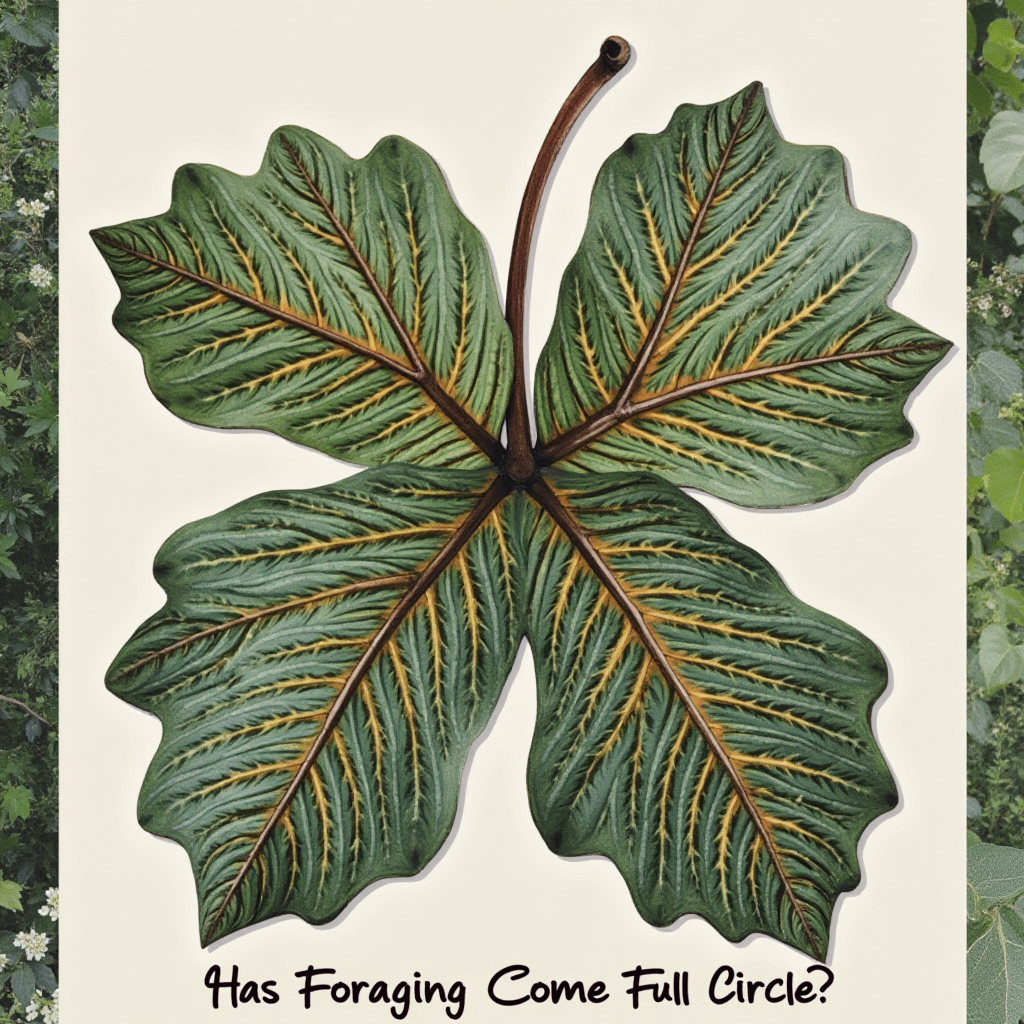Has Foraging Come Full Circle?

I’ve “hunted” for truffles twice now—but only recently realized that this categorically falls into the realm of foraging. On a trip to Tuscany and Piedmont last fall, I began by meticulously scouting my surroundings, paying attention to the slight give of damp earth beneath my boots; these patches hidden by fallen leaves suggesting a likely location for the prized fungi to be growing underground.
I carefully took over digging where the trained truffle dogs began an erratic excavation after catching a whiff of their earthy aroma. I used both my fingers and a hooked tool to delicately carve around the bulging black summer truffle, ensuring not to break it in half (a loss in both the short term as it affects the truffle’s weight, and the long term as leftover crumbs will entice another dog to dig up the prime breeding ground, ultimately disturbing future growth). This, it turns out, is foraging—or “a wide search over an area in order to obtain something, especially food or provisions,” as Oxford Languages defines it.
Historical Context and Modern Resurgence
The practice dates back nearly 200,000 years: about as long as humans have lived, as it comprised the inherent hunter-gatherer lifestyle. It was only about 500 years ago that this was disrupted as a result of agricultural evolution (farming, domesticated animals) and eventually, the convenience of grocery stores. In the last five years, however, the pendulum has swung back, as a growing interest in self-sufficiency (exacerbated by the pandemic and climate change) and conscious consumption has prompted a foraging renaissance.
Foraging in Travel
Within the world of travel, too, there’s been a surge of interest in foraging. Hotels and restaurants have introduced foraging-specific programs or experiences for guests to reconnect with nature—and acquire elements of a meal to savor later.
“There’s a growing awareness of and appreciation for hyper-local, seasonal, and wild ingredients. People want to know where their food comes from and experience flavors that are unique to a particular place and time,” shares Kirsten Dixon, co-founder of Within The Wild, an Alaskan adventure company.
Tutka Bay Lodge
At Tutka Bay Lodge, guests can partake in both coastal and forest foraging. Here, they may collect beach greens, oyster plant, arrowgrass, beach peas, and sea lettuce before moving inland to find fiddlehead ferns, sweet woodruff, porcini and yellow mushrooms, spruce tips, as well as a host of edible flowers and wild berries. All hyper-seasonal, the team lets the time of year and landscape dictate the harvest.
Wildflower Farms & Auberge Resorts Collection
“Foraging gives people an outlet to literally consume the wild and feel the power of the natural world,” shares Will Conway from Wildflower Farms. Meanwhile, in southwestern France, foraging is “an integral part of the culinary culture.” Here, guests can forage mushrooms in the summer, chestnuts in the fall as well as aromatic herbs, edible flowers, and fruits year-round.
The Eco-Responsibility Angle
Eco-responsibility is firmly planted in travelers’ minds now. Foraging checks all the boxes: embracing local sourcing, shortening the food supply chain, celebrating life’s simple pleasures, and reminding humans of our symbiotic relationship with nature.
Foraging’s Future
As long as nature continues to tantalize travelers with its magic, even providing them with a new skill they can apply back at home, foraging’s correlation to clean eating and unprocessed nourishment will keep it relevant. As Enza DePalma from Wildflower Farms puts it: “I see this as a shift rather than a trend.”
My Personal Foraging Experiences
In my own forays into foraging, I’ve discovered how rewarding and grounding the experience can be. The act of foraging allows one to truly immerse themselves in nature’s rhythm, discovering hidden gems and understanding the delicate balance that sustains our ecosystems.
- Connection with Nature: Foraging deepens my connection with the natural world, reminding me of its bounty and fragility.
- Sustainable Living: It reinforces principles of sustainability, encouraging a lifestyle that values quality over quantity.
- Culinary Adventure: The unique ingredients gathered offer an adventurous twist to culinary creations at home.
Conclusion
The revival of foraging is more than just a trend; it’s a return to our roots. It’s about nurturing a deep appreciation for what the earth provides and recognizing our role in preserving its gifts for future generations. As we embrace this ancient practice, let us do so with mindfulness and gratitude.